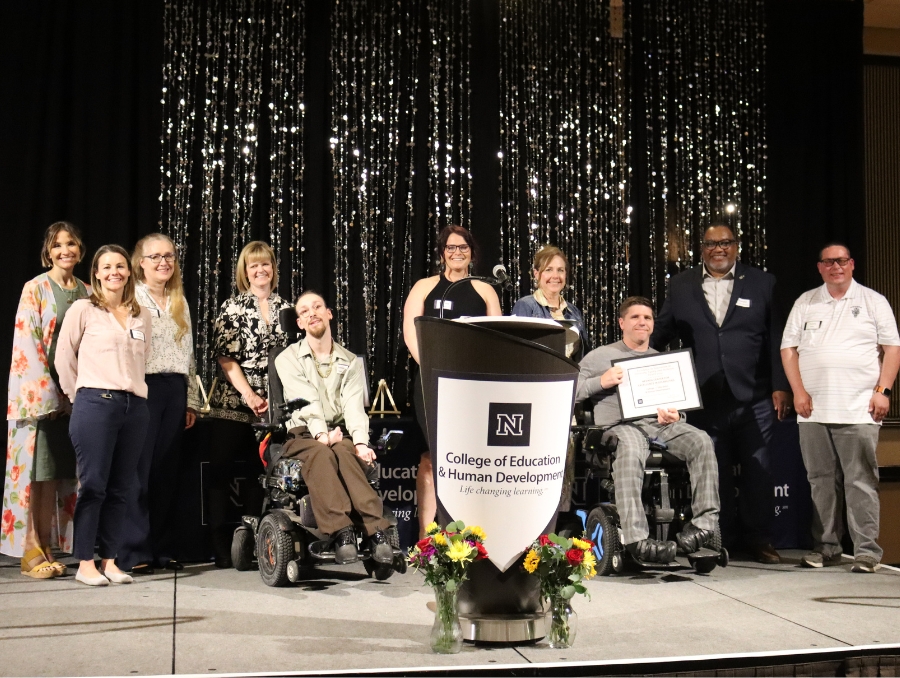Scott Clark has seen both the East Coast and the West Coast during his career as a developmental biologist.
"I've been going back and forth," he said recently in an interview in his office on the third floor of the Fleischman Life Sciences Building. Clark did his undergraduate studies at UC-Berkeley, his graduate work at MIT, followed by post-doctoral work at UC-San Francisco. Then, he moved to the Skirball Institute at the New York University School of Medicine to establish his own laboratory.
He joined Nevada's faculty this summer, making another move from one coast to another.
"I've lived in the East and in the West," he added, with a smile. "But I've never been anywhere in between."
Clark, who grew up in San Mateo, Calif., made the move to Nevada for several reasons. One was the campus' proximity to Lake Tahoe.
"Growing up in California, we'd come up to Lake Tahoe from time to time," he said. "Now I have the opportunity to do that a bit more."
Perhaps more importantly, Clark was well aware of the Department of Biology's growth in the field of developmental biology. Over the past several years, biology has added a growing number of talented researchers in this area, including Grant Mastick, Tom Kidd, Chi-Yun Pai and Patricia Berninsone.
"As the U.S. population ages, and more and more families face the challenge of dealing with Alzheimer's and other neurological problems of aging, it is essential that we gain a better understanding of neurosciences," said Jack Hayes, the former chair of the department who is now interim associate dean for the College of Science. "Scott's addition to the Biology Department brings a top-notch researcher who is making fundamental contributions to developmental biology and neuroscience.
"It also gives our students another chance to learn cutting-edge science from someone who is at the forefront of his field."
Hayes added that Clark comes to Nevada with a new NIH (National Institutes of Health) R01 award (four years at $280,000 per year) and over the course of his career so far has five papers in Science or Nature, the top journals in life sciences.
For his part, Clark, who studies how neurons make connections during the formation of the nervous system, said he's excited to have so many colleagues with similar interests.
"I'm in an environment where people are using different organisms, yet are often taking similar experimental approaches or asking similar questions as we are," he said. "A lot of what we are doing can be complementary, and can help all of us understand better what we each are trying to accomplish."
Clark uses the nematode C. elegans, a roundworm that is about 1 millimeter in length, in his studies. C. elegans is a multicellular organism, but is simple enough to be studied in great detail. They have only 959 cells, 302 of which are neurons.
"The pattern of connectivity of the C. elegans nervous system has been described in great detail and the sequence of its genome has been completely determined, so we are able to easily identify and study genes that are important for the assembly of the nervous system," Clark said.
C. elegans have an elegant simplicity in that much of what is learned from them can be used to create a much more general picture, Clark said.
"You get the basic paradigms from a model system (like C. elegans) and then use this knowledge to investigate things that might be happening in a human," he said.
The 45-year-old Clark noted that although the field of developmental biology is not new, there weren't many developmental biology courses taught when he was an undergraduate. Important advances from developmental genetic studies and the genome sequencing of humans and other organisms over the past 15 years or so, however, have changed all that.
"Now people are looking at dozens of genes at a time," he said. "The molecular understanding of things has really changed over the past decade and a half, and it's helped the field grow."
Now that Clark is in Reno, he's hoping not to bounce back to the East coast anytime soon.
"I'm really looking forward to re-connecting with this area and seeing a lot of things," he said. "I like to go hiking and I enjoy getting out in the mountains. I haven't skied much in my life, so maybe now is the time to try and take advantage of it."











